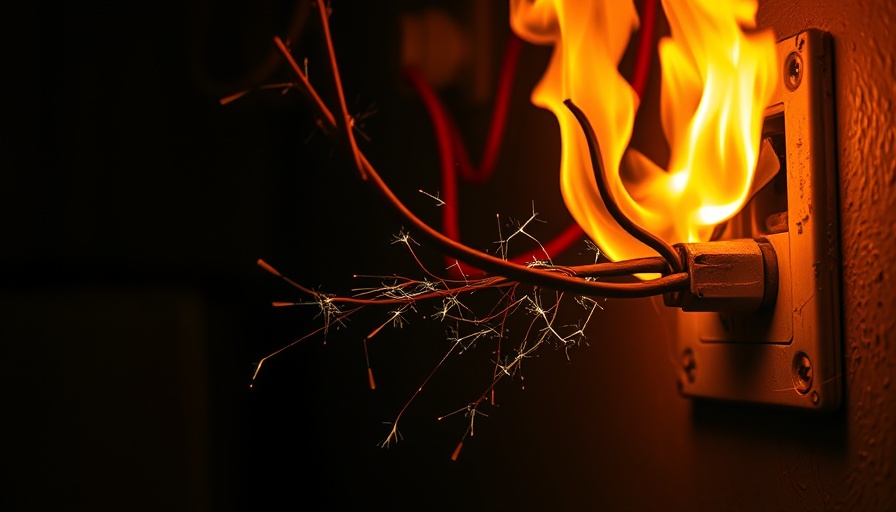
Understanding Electrical Hazards in Your Home
Electricity powers our lives, but it can also pose serious risks if not managed correctly. Homeowners need to be vigilant, as many electrical hazards exist in households that may go unnoticed until it's too late. By understanding these threats and taking preventive measures, everyone can enjoy a safe home environment.
Identifying Faulty Wiring and Overloaded Circuits
Faulty wiring is one of the leading causes of electrical fires, especially in older homes. If you notice frequent circuit breaker trips, flickering lights, or unpleasant burning smells, these may be signs of wiring issues. To address this, consider scheduling regular electrical inspections to identify potential problems early. Avoid overloading circuits with too many devices; instead, distribute your electrical load evenly.
Upgrade Your Electrical Panels for Safety
Your electrical panel is like the control center for all your home's power needs. An outdated panel can struggle to keep up with modern demands, resulting in overheating and potential fires. Hiring a qualified electrician to inspect the panel and upgrade it if necessary can greatly enhance safety and efficiency in your home.
Avoiding Improper Use of Extension Cords
Extension cords offer a quick solution for extra power needs; however, relying on them long-term creates hazards. Many people make the mistake of running cords under carpets, which can cause overheating. Use extension cords only as temporary fixes and consider having more outlets installed in high-demand areas instead.
Preventing Overloads with Power Strips
Power strips might seem convenient, but overloading them can lead to electrical failure or fires. Always plug high-energy appliances like space heaters directly into the wall. Choose power strips with built-in surge protection to safeguard your devices and your home.
Always Mind Water Around Electricity
Water and electricity don’t mix! To prevent shocking accidents, use Ground Fault Circuit Interrupters (GFCIs) at outlets near water sources. Always keep appliances away from wet areas and ensure your hands are dry before using any electrical devices.
Conclusion: Taking Action for a Safer Home
By being proactive about electrical safety, homeowners can significantly reduce risks within their homes. Whether it’s scheduling inspections or simply rearranging use of extension cords, every step counts. So, why not start your electrical safety journey today?
 Add Row
Add Row  Add
Add 




Write A Comment